The International Co-operative Alliance describes how a co-operative is at least partly owned and controlled by its members. The Co-operative Bank has never had members, but it used to be owned by The Co-operative Group, which does have members. Now the Co-operative Group has almost completely withdrawn from the bank, we want to see progress - towards bank customers having more say and more ownerhsip.
Following a meeting in September 2017, we asked the bank to give us their thoughts on these two issues in a form we can share with members. When reading these statements, please bear in mind that the bank has to be very careful what it says - for example in case it is accused of providing misleading information about investment.
Listening to our customers
This year marked the 25th anniversary of our Ethical Policy and we have recognised this with a national advertising campaign featuring a number of our customers talking about the Bank and our commitment to ethics. The campaign is available to view on our website and has been shared broadly on social media.
As we take forward our plans, we are keen to build a greater level of engagement with our customers, helping us to shape our thinking. We are planning to engage with customers to inform and update the development of our ethical policy during 2018. We are considering how this engagement could also extend to directly inform our thinking more broadly including in the development of products and services. We see a role for the Customer Union as part of any potential exercise and its members’ feedback and views will be important for the Bank to consider. In the future the ability of customers to influence the Bank will not simply depend on customer ownership.
Share ownership and future strategy
We note the Customer Union’s recent report about customer ownership, and the issues it raises.
The recent history of the Bank, including the capital and regulatory issues we have faced since 2013, mean that the risks associated with an investment in the Bank are such that we are unable to consider customer ownership as an appropriate future strategy for the Bank in the foreseeable future.
At the outset of the sale and recapitalisation process, the Bank made clear that it saw its distinctive ethical position as a source of value for any potential purchaser. Given our ongoing commitment to values and ethics, it is likely that our ethical position will continue to represent a source of value as the Bank moves forward.
Given our enduring commitment to Values and Ethics and our determination to consult fully with our customers, ownership of shares by retail customers should not be required to make their voices heard.
Background on the shareholder structure
Regulations prevent us from providing any specific financial advice with regard to share purchase decisions.
The Bank’s shares are not listed on any stock exchange and to purchase them would require an “Over the Counter” trade – via an investment bank or similar financial institution. This type of investment and transaction is usually made by institutional investors as opposed to retail investors due to the inherently risky nature and lack of liquidity associated with unlisted shares.
The share structure of the Bank is appropriate to the type of major institutional investors that have enabled the Bank to achieve this recapitalisation, and who recognise the investment risk that this entails. The Bank has two classes of shares: ’A’ shares and ’B’ shares. While A shareholders are entitled to any economic benefit in the future, the B shareholders have the main voting rights. Shareholders who hold 10% or more of the A shares and who satisfy certain conditions including having been approved by the PRA as a controller of the Bank through their proposed holding of B Shares) are entitled to acquire B shares on the basis of one B share for every 1% of the A shares held.




